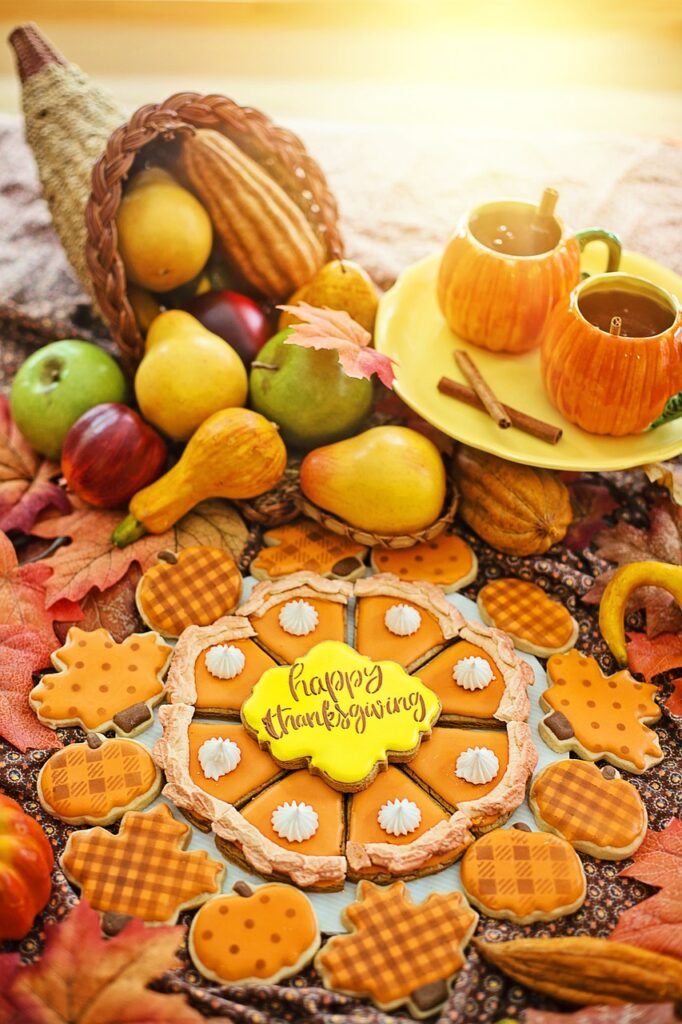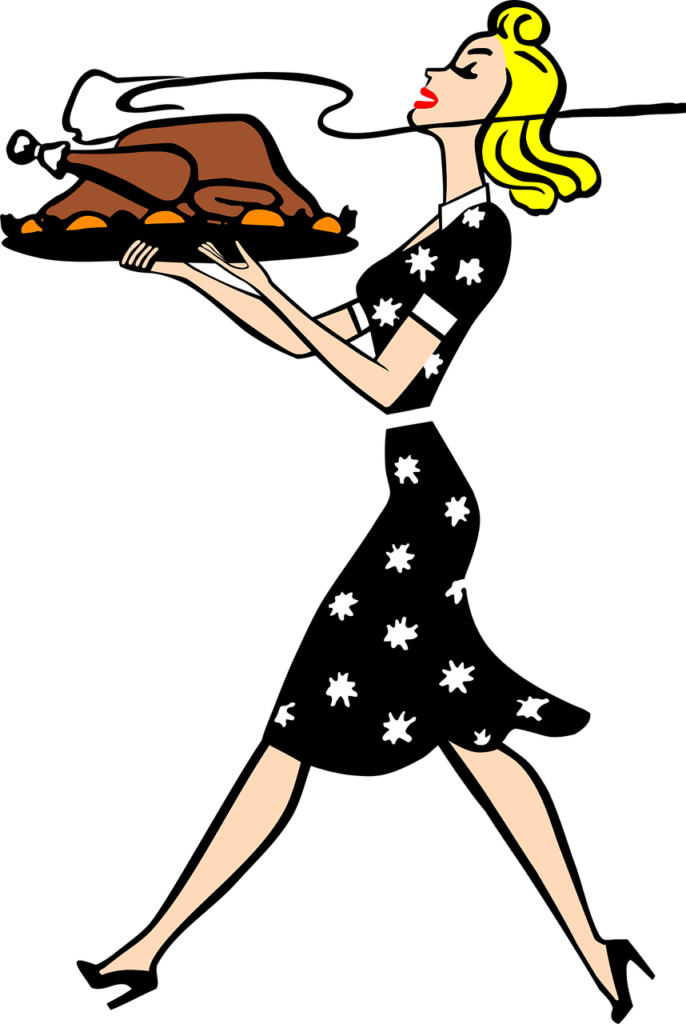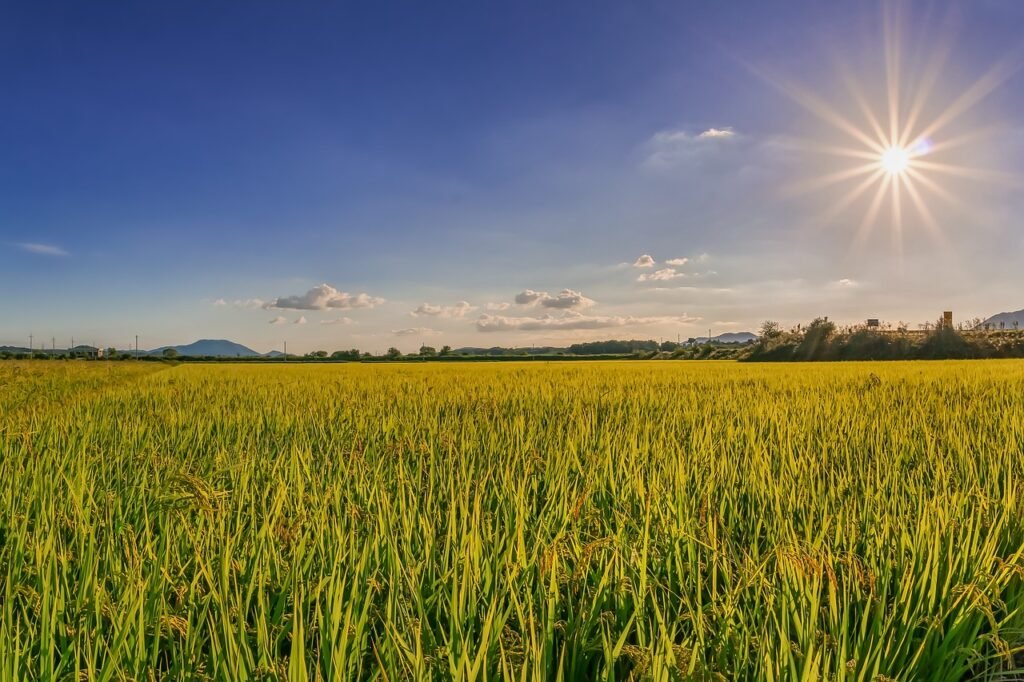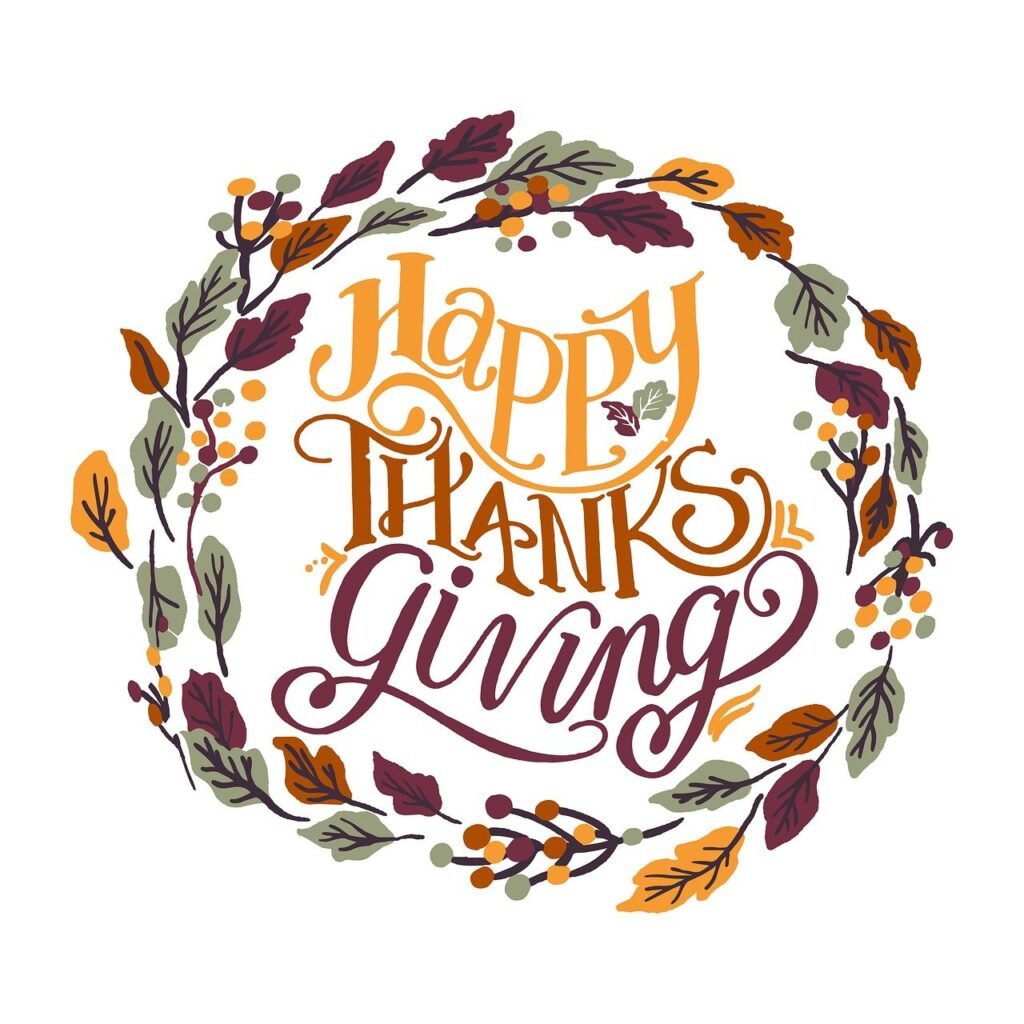
Understanding Thanksgiving in Germany
Ah, Thanksgiving, the day when Americans gather to gobble down turkey, potatoes, and pie while engaging in conversations they’d rather not have. But in Germany? Nope, no such tradition. Instead, they have something called Erntedankfest, which is a far cry from the calorie-laden American version. Think of it as Thanksgiving’s quieter, introverted cousin who prefers small gatherings over huge parties.
Erntedankfest translates to “Harvest Thanksgiving Festival” and is a more reserved celebration primarily rooted in religion. Instead of massive feasts and hours of football, you’ll find church services and communal activities that focus on giving thanks for the year’s harvest. It’s all about gratitude minus the gluttony. Imagine attending a local church service and then maybe wandering through a small village fair—no marathon cooking sessions, no parade balloons floating by.
Now, what’s on the menu? Don’t expect a German Thanksgiving to revolve around turkey. That bird is as rare as a unicorn in Germany during this time. If they did whip up a festive feast, you’d more likely find dishes like schnitzel, potato dumplings, and loads of sauerkraut. Bread and pastries make frequent appearances too. And let’s not forget the beer, because it’s Germany. So, think less cranberry sauce and more pretzels, sausages, and maybe a hearty stew. Desserts? How about a slice of Black Forest cake instead of pumpkin pie? Yes, please!
The atmosphere is also different. Instead of families crammed around a table, you’d probably find them in a more relaxed setting, maybe even in lederhosen, toasting with a mug of beer. The phrase “Happy Thanksgiving” in German, or “Fröhliches Erntedankfest,” would echo with a collective “Prost!” rather than a “Cheers!”
The entire affair is just less commercialized. You won’t find pre-Thanksgiving sales or a mad rush to buy holiday décor. Erntedankfest stays true to its roots, focusing more on gratitude and community than consumerism. It’s a refreshing contrast to the American spectacle of overeating and over-shopping.
So, while the idea of a German Thanksgiving might seem appealing with its beer and schnitzel, it’s still a laid-back event, far removed from the all-you-can-eat, tryptophan-induced coma we know in the States. And honestly, that’s kind of charming. No pressure, no fuss, just simple thanks for the harvest and good company.
Imagining a German-Style Thanksgiving

So, what if the Germans decided to throw their own Thanksgiving bash? Picture this: schnitzel instead of turkey, potato dumplings replacing mashed potatoes, and a ton of sauerkraut because why not? Maybe a beer or two—after all, it’s Germany we’re talking about. Add some pretzels, sausages, and Black Forest cake for dessert. It’d be a carb lover’s dream and probably involve a lot more toasts and lederhosen than your typical American Thanksgiving. Imagine saying “Happy Thanksgiving” in German with a hearty “Prost!” instead of “Cheers!”
Picture the scene: a cozy German home decked out with traditional decorations, but instead of football blaring in the background, you might hear some classic German tunes or even see an accordion player in the corner. Families gather around a table loaded with hearty dishes, each one a tribute to German culinary tradition. Instead of the familiar turkey centerpiece, imagine a golden-brown schnitzel, crispy on the outside and juicy on the inside. Potato dumplings smothered in rich gravy would make you forget all about mashed potatoes, and the sauerkraut would provide a tangy contrast that your taste buds never knew they needed.
The sides wouldn’t stop there. Picture platters of pretzels fresh from the oven, paired with an array of mustards that range from sweet to spicy. Sausages of all kinds would make an appearance, from bratwurst to weisswurst, each one bursting with flavor. And because it’s Germany, there’d be no shortage of beer, with each family member raising a stein to toast to another year of good harvest and good company.
For dessert, say goodbye to pumpkin pie and hello to the rich layers of Black Forest cake. Chocolate, cherries, and whipped cream—what’s not to love? Maybe there’d even be a selection of freshly baked bread rolls and pastries, like apple strudel or Berliners, to ensure everyone ends the meal on a sweet note.
And let’s not forget the setting itself. Instead of the rushed, frantic energy of an American Thanksgiving, a German-style Thanksgiving would be more laid-back, like a casual family gathering that just happens to involve a feast. Picture folks lounging around in their lederhosen or dirndls, chatting and laughing with a glass of beer in hand. The phrase “Happy Thanksgiving” in German would ring out as “Fröhliches Erntedankfest,” with every clink of a mug emphasizing the community spirit.
All in all, a German-style Thanksgiving would be a unique twist on the American classic, blending familiar elements with a distinct German flair. It’s not just about the food; it’s about the atmosphere, the tradition, and, of course, the beer. So next time you’re thinking about Thanksgiving, maybe throw a schnitzel on the table and see how it changes things up.
The Popularity of Thanksgiving in the USA

Thanksgiving in the USA is like the ultimate food-fest showdown, where you gather with family to eat your body weight in turkey, potatoes, and pie, all while pretending you don’t have any family drama. The roots of this holiday go way back to the Pilgrims and Native Americans who had a big feast together. Fast forward to today, and Thanksgiving has morphed into a beloved celebration that 81 percent of Americans eagerly anticipate, while 19 percent opt for a quiet Thursday night without the calorie binge. It’s a beloved time for traditions, family gatherings, and, of course, the anticipation of the giant sales day right after, Black Friday.
Thanksgiving isn’t just about the food—though let’s be real, the food is a huge part of it. It’s also about those quirky family traditions, like arguing over who gets the drumstick, debating the best way to make stuffing, and trying to figure out how in the world the cranberry sauce got that weird shape. And don’t forget the football games, where you cheer for your team (or pretend to) while sinking deeper into your food coma. It’s essentially a day where you can wear stretchy pants without judgment and take a nap mid-afternoon because, hey, it’s a holiday.
Another huge part of Thanksgiving’s charm is its role as the kickoff to the holiday season. As soon as the dishes are cleared (or shoved into the dishwasher), the anticipation for Black Friday kicks in. Yes, the very next day, Americans transform from food-loving pilgrims into deal-hunting warriors. Black Friday is almost a sport in itself, with people lining up at ungodly hours to snag the latest gadgets, toys, and flat-screen TVs at rock-bottom prices. It’s a beloved time for traditions, family gatherings, and, of course, the anticipation of the giant sales day right after, Black Friday.
Thanksgiving has this magical ability to bring people together, even if it’s just to argue over who makes the best pumpkin pie. And the best part? There’s no pressure of gift-giving, making it one of the more laid-back holidays.
Germany’s Adoption of Black Friday

While Germans might skip the turkey, they’re all in for the deals. Black Friday has become quite the hit in Germany, even without the preceding turkey coma. Thank American consumer culture for this one. With the magic of the internet, savvy German shoppers started to realize there were crazy deals to be had, and they were not about to miss out on a bargain. In recent years, this has become more pronounced, as the holiday shopping season in Germany now also covers Black Friday. Consumer behavior has shifted to include this American import, which influences everything from holiday gifts to New Year’s resolutions.
Unlike their American counterparts, Germans don’t have the luxury of a long weekend to recuperate from their shopping escapades. Black Friday happens as they go about their regular workweek, making the whole ordeal a bit of a hustle. But when there’s a chance to save big, who needs sleep, right?
Stores across Germany roll out the red carpet with promotions that rival those in the U.S., from electronics and clothing to toys and home goods. Even local shops have jumped on the bandwagon, offering discounts that have German shoppers eagerly waiting for the clock to strike midnight. It’s like Oktoberfest, but with less beer and more shopping carts.
What’s more, Germans have also embraced Cyber Monday, because why stop at one day of deals when you can have two? Online shopping has exploded, with websites crashing under the weight of eager deal-hunters. It’s a far cry from the relaxed, cozy vibe of Erntedankfest, but it’s a thrilling chase for discounts that Germans have come to love.
And the excitement isn’t just limited to shoppers. Retailers gear up for Black Friday months in advance, crafting elaborate marketing campaigns to lure in customers. It’s a spectacle in itself, complete with flashy advertisements, countdown timers, and a sense of urgency that can make even the calmest person feel the need to grab that half-priced vacuum cleaner before it’s gone.
Some folks argue that this rush for deals takes away from the true spirit of the holiday season, but for many, Black Friday is a sport, a challenge, and an opportunity to snag gifts and gadgets without breaking the bank. It’s consumerism at its finest, blending American influence with German efficiency. Whether you’re braving the crowds in-store or clicking furiously online, there’s a certain thrill in scoring a deal that’s hard to resist.
So, while the concept of Thanksgiving remains largely foreign in Germany, Black Friday has found a home, transforming the holiday season into a frenzy of bargains and buzz. It’s a testament to how global our world has become, where a tradition born in the U.S. can find its place in the heart of Europe, one discount at a time.
A Personal Look: Germany in the ’90s
Ah, the 1990s in Germany—where mullets were as abundant as bratwurst, and Black Friday was about as well-known as the Tooth Fairy’s dental records. Back then, the concept of a frenzied shopping spree right after a non-existent turkey day was unheard of. My time in Germany was blissfully free of the insanity that is Black Friday. Thanksgiving? What Thanksgiving? The closest we got was Erntedankfest, and even that was a low-key affair centered around giving thanks and maybe munching on some local fare, not stuffing ourselves into oblivion.
The holidays in Germany had a different vibe altogether. Forget about the turkey and pumpkin pie; it was all about Christmas markets, mulled wine, and gingerbread. The pace was slower, the focus was more on community and tradition, and the idea of camping outside a store to snag a deal was just plain absurd. Shopping was a leisurely activity, not a competitive sport.
Fast forward to today, and it’s like a whole different planet. The internet happened, American consumer culture seeped in, and suddenly Black Friday became a thing in Germany too. Now you can find Germans staying up late, clicking madly through online deals, and even lining up outside stores. It’s a wild transformation from those serene ’90s holidays.
Back then, I remember wandering through quaint Christmas markets, sipping Glühwein and enjoying the peaceful atmosphere. There were no flashing sales signs or the sound of cash registers competing with Christmas carols. Instead, it was about handmade crafts, local delicacies, and that heartwarming sense of gemütlichkeit—a cozy, communal warmth that’s hard to describe but easy to love.
I must say, I kind of miss those days. The simple pleasure of enjoying a holiday season without the pressure of finding the best deal was something special. But hey, times change. And while Black Friday may have taken root in German soil, it hasn’t completely overshadowed those wonderful old traditions. There’s still plenty of bratwurst, bier, and yes, a bit of schnitzel to go around.
So, to my fellow ’90s nostalgics, let’s raise a mug of Glühwein to simpler times. And to the new generation of deal hunters—good luck out there. You’re gonna need it.
